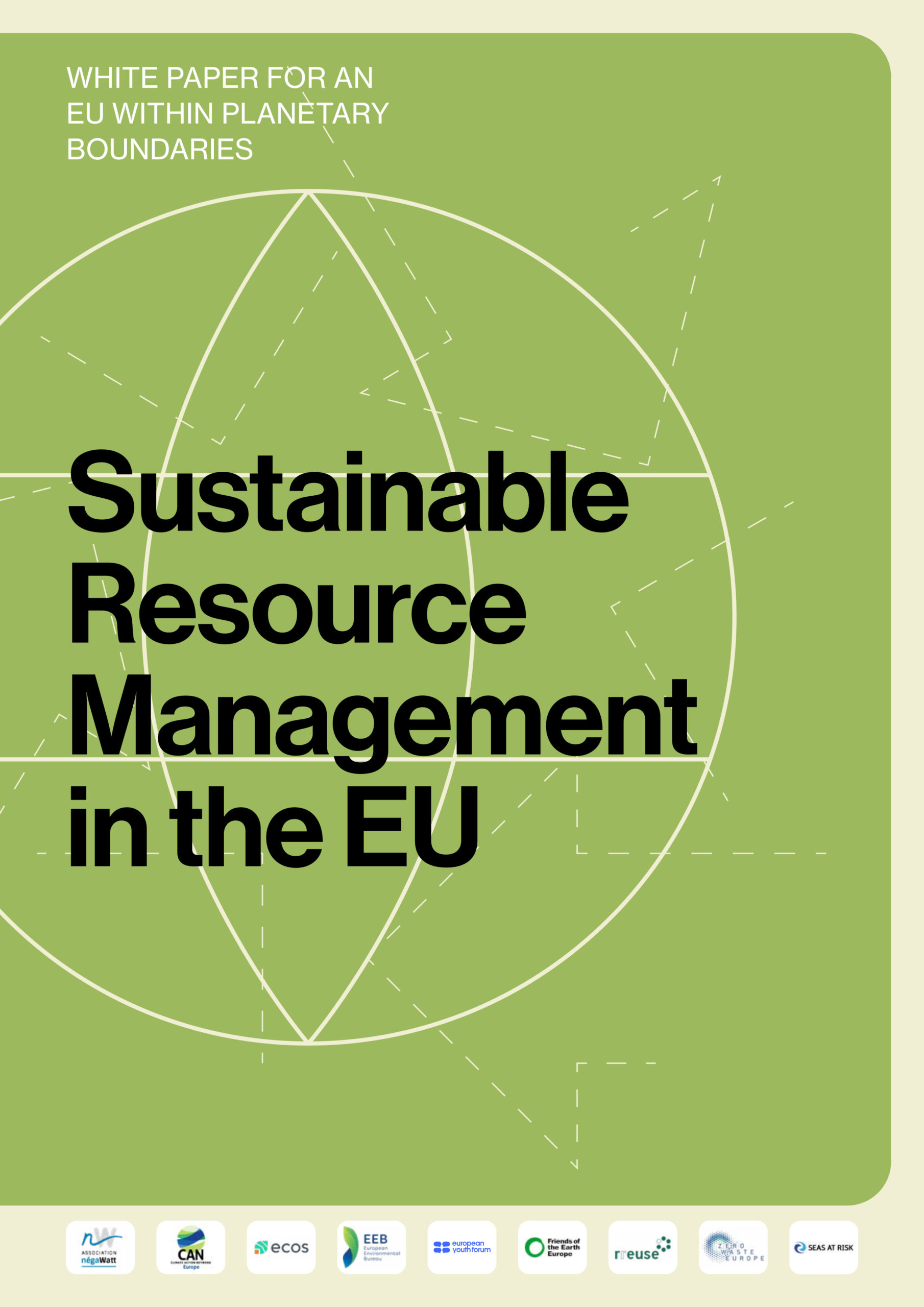Resource extraction and processing are at the root of the greatest crises of our generation: global warming, biodiversity loss, water stress, pollution, and social injustices. The evidence is clear: 90% of global biodiversity loss and water stress, 50% of global greenhouse gas emissions, and over 30% of air pollution health impacts are caused by resource extraction and processing.
To meet its environmental goals and to achieve the EU’s objectives of “living well within planetary boundaries”, it is absolutely necessary that the EU addresses its unsustainable consumption of resources. The EU Climate Law and the European Green Deal have been major steps towards making the EU more sustainable. However, many key parts are subject to ‘carbon tunnel vision’ and do not adequately address the systemic links between the climate crisis and other worsening global crises. The EU’s material footprint – the total amount of fossil fuels, biomass, metals and minerals it consumes, including embodied in imports – currently stands at an alarming 14.8 tonnes per capita annually, more than double the threshold deemed sustainable and just.
We need an EU legislation on Sustainable Resource Management will help transform Europe into a fair, autonomous, resilient and sustainable economy.
In a collective voice, CAN Europe and its co-signatories have joined to support an EU Directive on Sustainable Resource Management. This white paper was written collaboratively with the négaWatt Association, European Environmental Bureau, ECOS, RREUSE, the European Youth Forum, Friends of the Earth Europe, Zero Waste Europe, and Seas at Risk.




